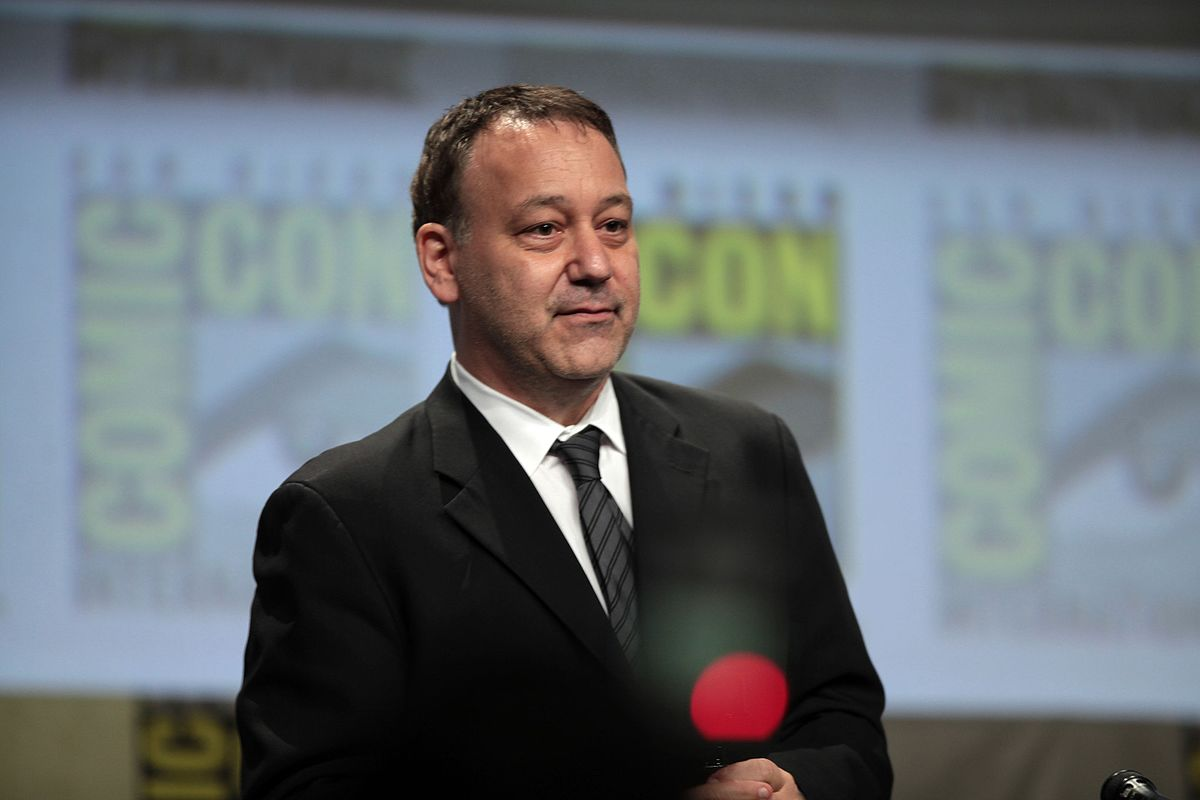Title of the work
Studio / Production Company
Country of the First Edition
Country/countries of popularity
Original Language
First Edition Date
First Edition Details
S02E01. The King of Thieves. Directed by Doug Lefler; Written by Doug Lefler. USA, Syndicated (MCA); September 4, 1995. 44 min. – S02E24. The Cave of Echoes. Directed by Gus Trikonis; Written by John Schulian & Robert Bielak. USA, Syndicated (MCA); June 24, 1996. 44 min.
Running time
Format
Date of the First DVD or VHS
Official Website
mca.com/tv/Hercules (accessed: October 8, 2019).
Awards
2004 – Hercules: The Legendary Adventures seasons 1 & 2, nominated for “Saturn Award: Best DVD Television Release” for Academy of Science Fiction, Fantasy & Horror Films, USA;
1996 – Hercules: The Legendary Journeys, Season Two, Episode 1 “The King of Thieves” won “Best Design” for TV Guide New Zealand Film and Television Awards.
Genre
Action and adventure fiction
Mythological fiction
Myths
Television series
Target Audience
Crossover
Cover

We are still trying to obtain permission for posting the original cover.
Author of the Entry:
Joel Gordon, University of Otago, joel_gordon@hotmail.co.nz
Peer-reviewer of the Entry:
Elizabeth Hale, University of New England, ehale@une.edu.au
Lisa Maurice, Bar-Ilan University, lisa.maurice@biu.ac.il

Sam Raimi by Gage Skidmore. Retrieved from Wikimedia Commons, licensed under CCBY-SA 2.0 (accessed: December 30, 2021).
Sam Raimi
, b. 1959
(Producer)
Sam Raimi is an American filmmaker, actor and producer. He was born in Michigan (USA), to a conservative Jewish family, and attended Michigan State University. His career has been closely linked with that of Robert Tapert. Although Raimi intended to major in English, he chose to put his studies on hold in order to work on the feature film The Evil Dead (1981), after the success of his first co-operative production with Robert Tapert, The Happy Valley Kid (1977). Raimi is a co-founder of both Renaissance Pictures and Ghost House Pictures (see above). His solo-directorial work (distinct from productions with Tapert) include the original Spider-man trilogy (2002–2007) starring Tobey Macquire, and, most recently, Oz the Great and Powerful (2013). His most recent solo-producer role was for the crime-thriller, Don’t Breathe (2016). As an actor, Raimi has appeared in many of his own films as minor characters – such as his cameo appearances in The Evil Dead and its sequels. Raimi turned to television during the 1990’s, working together with Tapert as a producer for the franchises Hercules: The Legendary Journeys, Xena: Warrior Princess, Young Hercules and Spartacus.
Bio prepared by Joel Gordon, University of Otago, joel_gordon@hotmail.co.nz

Robert Tapert by Cooltv. Retrieved from Wikipedia, licensed under CC0 (accessed: December 30, 2021).
Robert Tapert
, b. 1955
(Author, Producer)
Robert Tapert is an American actor, producer and writer. Born in Royal Oak, Michigan (USA), he attended Michigan State University where he first began experimenting with filmmaking under the influence of Sam Raimi. During this time, they both worked on the film The Happy Valley Kid (1977) in which Tapert also starred in the leading role. Following the success of this venture, the pair began work on their first feature film, The Evil Dead (1981) – directed by Sam Raimi and starring Bruce Campbell – and, in order to assist with its production, Tapert, Raimi and Campbell (along with Irvin Shapiro) co-founded Renaissance Pictures in 1979. This trio have since worked together on numerous successful films – particularly in the horror genre – including: Crimewave (1985), Easy Wheels (1989), Darkman (1990), Lunatics: A Love Story (1991), Timecop (1994), 30 Days of Night (2007) and The Gift (2015). In 2002 Tapert and Raimi co-founded Ghost House Pictures known for, among others, the film franchises The Grudge (2004, 2006, 2009) and Bogeyman (2005, 2007, 2008). Tapert’s involvement in television began during the 1990’s with his most notable productions being the franchises of Hercules: The Legendary Journeys (1995-1999), Xena: Warrior Princess (1995–2001) and Young Hercules (1998–1999) – all of which included both direct-to-television movies and television serials spanning several seasons. It was during this period – in 1998 – that Tapert married New Zealand actress Lucy Lawless (the star of Xena), with whom he has since had two children. More recently, his interest in antiquity and television has returned with the serials Spartacus: Blood and Sand (2010), Spartacus: Gods of the Arena (2011), Spartacus: Vengeance (2012) and Spartacus: War of the Damned (2013) and plans for a Xena reboot for NBC. (see further, his official website, accessed: August 16, 2019).
Bio prepared by Joel Gordon, University of Otago, joel_gordon@hotmail.co.nz

Christian Williams by Pacunagonz. Retrieved from Wikimedia Commons, licensed under CC BY-SA 4.0 (accessed: December 30, 2021).
Christian Williams
, b. 1943
(Author, Producer)
Christian Williams is an American journalist and television writer from Brooklyn, New York. His career in the news industry began in 1972 as an assistant editor (Style Section) for The Washington Post. It was during his early years at the Post that Williams was given a unique insight into the film/television industry, serving as the editor on a behind-the-scenes exclusive when Robert Redford used the Post’s newsroom to research his film All the President’s Men (1976). In 1984 Williams became a reporter in Bob Woodward’s investigative team which led to his second interaction with the film/television industry: in 1986 Woodward’s team (Woodward, Williams and co-journalist Richard Harwood) wrote and featured in an ABC movie, Under Siege, which was based upon the group’s reporting on domestic terrorism. Williams then continued to dabble in the television industry, co-writing (alongside Woodward) an episode of the television drama series Hill Street Blues (1981–1987), before formally leaving journalism for a career as a television writer – specializing in one-hour drama television shows. He went on to co-create (alongside David Milch) the drama Capital News (1990) before assisting in the creation of Hercules: The Legendary Journeys franchise (which began with the five direct-to-television films). Unlike Tapert and Raimi, however, Williams was not directly involved in the production of the Hercules: The Legendary Journeys serial beyond the pilot films. Williams went on to continue writing for television, for example as the co-executive producer of the drama Six Feet Under (2001–2005), until he retired in 2010. He has since turned his interests to authoring books and sailing.
Bio prepared by Joel Gordon, University of Otago, joel_gordon@hotmail.co.nz
Casting
Main Cast:
Hercules: Kevin Sorbo,
Iolaus: Michael Hurst.
Supporting Cast:
Alcmene: Liddy Holloway,
Aphrodite: Alexandra Tydings,
Artemis: Rhonda McHardy,
Atalanta: Corinna Everson,
Autolycus: Bruce Campbell,
Deianeira: Tawny Kitaen,
Falafel: Paul Norell,
Hades: Erik Thomson,
Iphicles: Kevin Smith,
Jason: Jeffrey Thomas,
Nemesis: Karen Witter,
Salmoneus: Robert Trebor.
Adaptations
Sequels, Prequels and Spin-offs
Summary
The second season of Hercules: the Legendary Journeys utilizes the same basic structure as the first season (see relevant entry) but builds upon the momentum of the franchises’ popularity to expand the number of episodes to almost double that of the first season (13 and 22, respectively). Each episode is self-contained and depicts Hercules and his companion, Iolaus, embarking upon a quest to defeat a villain/bad-guy and/or to resolve an issue of injustice that plagues a town/village. These quests involve a variety of tasks which are at home within both the ancient world and the larger mythological-fantastical setting and/or also reflect the characterisation of Hercules as a champion of the public: for example, Hercules defending Iolaus’ innocence, having been wrongfully charged of a crime for which the punishment is death (ep. 1); Hercules rescuing his mother Alcmene from Echidna, the mother of the monsters whom he has slain (ep. 7); Hercules travelling to the underworld to rescue Persephone who has been abducted by Hades (ep. 8); Hercules retrieving the golden fleece after it is stolen (ep. 14); and, Hercules founding the Olympian games in order to broker peace between the Eleans and the Spartans (ep. 16). As with season 1, Hera’s role as Hercules’ primary antagonist provides a recurrent sub-plot which is woven throughout the entirety of the season, with many of the monsters or injustices being traced back to the goddess’ machinations.
That said, season two also expands upon the Hercules-universe by devoting more episodes to character building and the introduction of new recurrent characters. For example, Alcmene (Hercules’ mother – played here by Liddy Holloway who replaced season 1’s Elizabeth Hawthorne) features in numerous episodes as a character in her own right (ep. 3, 7, 21) and provides insight into the backstory of Hercules’ younger years. Likewise, episode 1 introduces Autolycus, the so-called “King of Thieves”, who became a regular character throughout this and later seasons (see relevant entries).
Analysis
It is notable that season two of HTLJ engages with ancient narratives in a more emphatic manner than the previous season and/or films. This engagement takes several forms: modernised retellings of known narratives derived from antiquity (adapted in order to better reflect both modern sensibilities and internal continuity with the franchise); and ‘filling in the gaps’ by exploring the aftermath of well-known mythical narratives. By comparison, the characterisation of the figures who fill these narratives is more anachronistic than ancient.
First, season two includes several episodes which are modernised retellings (or, alternatively, modern appropriations) of mythological narratives derived from antiquity; however, these narratives are very clearly “updated” with certain anachronisms to reflect modern sensibilities. A clear example of this occurs is episode 8, “The Other Side”, which presents a retelling of the Homeric Hymn to Demeter according to which Hades abducts Persephone as his bride. Certain aspects of the episode clearly derive from the Homeric Hymn and remain unchanged, such as Persephone picking flowers during her abduction, Demeter withholding crops from mankind until her daughter is returned to her, and the resolution of Persephone’s abduction by an arrangement of shared time in the underworld/real world. This stated, the overall tone of the narrative is notably different than its ancient counterpart. Rather than Persephone being “gifted” to Hades in accordance with the will of Zeus – a contentious act according to modern sensibilities regarding the independence of women – Hades and Persephone are here presented as an enamoured and misunderstood pair of lovers whose desire to be together is problematized by the combination of Persephone’s equally strong desire to see her mother and the latter’s overprotectiveness of her daughter. Furthermore, it is Hercules’ decision to prioritize Persephone’s personal wish (i.e., her desire to spend time with both her mother and her lover) that results in the division of her time. Thus, this modern Persephone is presented as a fully-fledged character in her own right with her own feelings and emotions which are not only recognised but also validated, rather than merely the object of Hades’ desire to be gifted to Hades by her father Zeus and whose own opinion is of no concern. Another example of such adaptation occurs in episode 11, “Highway to Hades”, which presents a modified version of Sisyphus’ attempt to cheat/escape death. Here, the episodes’ narrative introduces additional characters (e.g., Timuron and Daphne) and mixes in elements from the Admetus and Alcestis myth (where the latter agrees to suffer the death of the former) as a means of updating the story.
Furthermore, several episodes include traditional narratives which have been modified in order to provide continuity with previous episodes and characterisations. For example, episode 16, “Let the Games Begin”, has Hercules found the Olympian Games in order to broker peace between the Spartans and Eleans. There is a degree of precedence for this narrative in that Pausanias Periegesis (5.7.6) records that the first (mythical) games were held when a certain Hercules raced his five brothers and crowned the winner with an olive branch. But, it should be noted this was a different figure to the ‘heroic’ Hercules (i.e., the son of Amphitryon upon whom the Hercules of this franchise is based). According to Pausanias (5.8.3), the hero Hercules did hold an Olympian Games but this was after the conquest of Elis, rather than in order to broker a treaty. This stated, the melding of these two figures into a single narrative fits the serial’s characterisation of Hercules as a champion of the people (on whose behalf he achieves peace). Likewise, episode 17, “The Apple”, is a modified version of “the judgment of Paris” from the Trojan Cycle, expect in the serial it is Iolaus rather than Paris who determines which of Aphrodite, Athena and Artemis is the most beautiful goddess. Furthermore, it is notable that Hera is traditionally the third goddess in this trio, but her role as the primary antagonist of the serial requires her to be substituted with another, Artemis.
In addition, episode 14 (“Once a Hero”) takes a known narrative from antiquity – i.e., Jason and Medea – and ‘fills in the gaps’ left by traditional tellings of this tale (e.g., Euripides’ Medea) and asks the question ‘what happened next?’ Thus, the audience is presented with a characterisation of the King of Argos following on from the murdering of his children by Medea. Jason is here characterised as a drunk, powerless and mad king, who continually mourns the death of his children and is plagued by demons. It falls to Hercules to reunite the Argonauts, in honour of the tenth anniversary of their quest for the Golden Fleece, and to track down the fleece (which has been stolen) in order to restore Jason to his kingly stature and reveal the villainous source of Jason’s troubling visions.
This presentation of Jason’s persona is a paragon for much of the characterisation in season 2, particularly those figures who are introduced here to audiences for the first time. While such characters have ancient counterparts, their characterisation is more anachronistic than ancient. Autolycus is prime example of such adaptation. Autolycus is introduced in episode 1 of season 2 as the titular “King of Thieves”: a thief with a heart of gold who, in later seasons, accompanies Hercules on his adventures (e.g.: s. 3, e. 19; s. 4, e. 1, 12, 16, 17, 18 etc). On the one hand, this characterisation largely matches Autolycus’ presentation within Hercules’ mythology: e.g., Apollodorus (2.6.6) confirms that Autolycus and Hercules knew each other, with the former having taught the latter how to wrestle, and also that Autolycus caused trouble for Hercules who was punished for Autolycus’ crime of stealing the cattle of Eurytus (in the serial, it is Iolaus who is framed for Autolycus’ crime – s. 2, e.1). Yet, the franchises’ characterisation of Autolycus clearly relies far more upon non-mythical influences. Most notable, Autolycus is dressed in a Robin Hood style costume (i.e., green tunics and tights) and his title, the “King of Thieves”, may be a reference to the 1991 Robin Hood film of this name (starring Kevin Costner). Further, Autolycus’ good-hearted nature and his strict adherence to a heroic code, despite being a thief, are in many ways similar to Robin Hood’s traditional characterisation. An alternative source for this version of Autolycus may be found in the character of the same name in Shakespeare’s The Winter’s Tale whose comedic presentation befits the campy nature of Hercules: the Legendary Journeys.
Finally, it should be noted that another, highly significant, example of anachronistic influences derived from film and television occurs in episode 14, “Once a Hero”. In this episode, skeleton soldiers emerge from sown dragons’ teeth. This is a clear nod to the coinage of this trope in Jason and the Argonauts (1963), made famous by the special effects of Ray Harryhausen.
Further Reading
Addenda
Directors: Doug Lefler, Garth Maxwell, Bruce Campbell, Stephen Posey, Bruce Seth Green, James Contner, George Mendeluk, Timothy Bond, John Kretchmer, T.J. Scott, Steven Baum, Rob Tapert, Peter Ellis, Gus Trikonis, Kevin Sorbo, Stewart Main, Anson Williams, Oley Sassone, Charlie Haskell.
Writers: Doug Lefler, Craig Volk, Michael Marks, Darrell Fetty, Robert Bielak, John Schulian, Scott Smith Miller, Garth Maxwell, Nelson Costello, Rob Tapert, Steven Baum, Patricia Manney, Brian Herskowitz.


